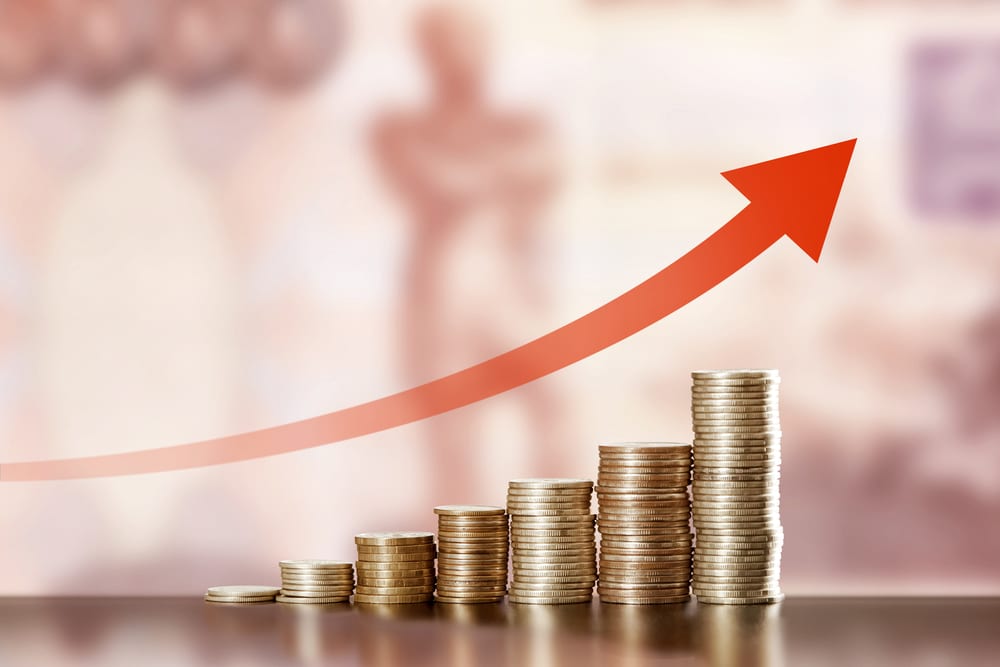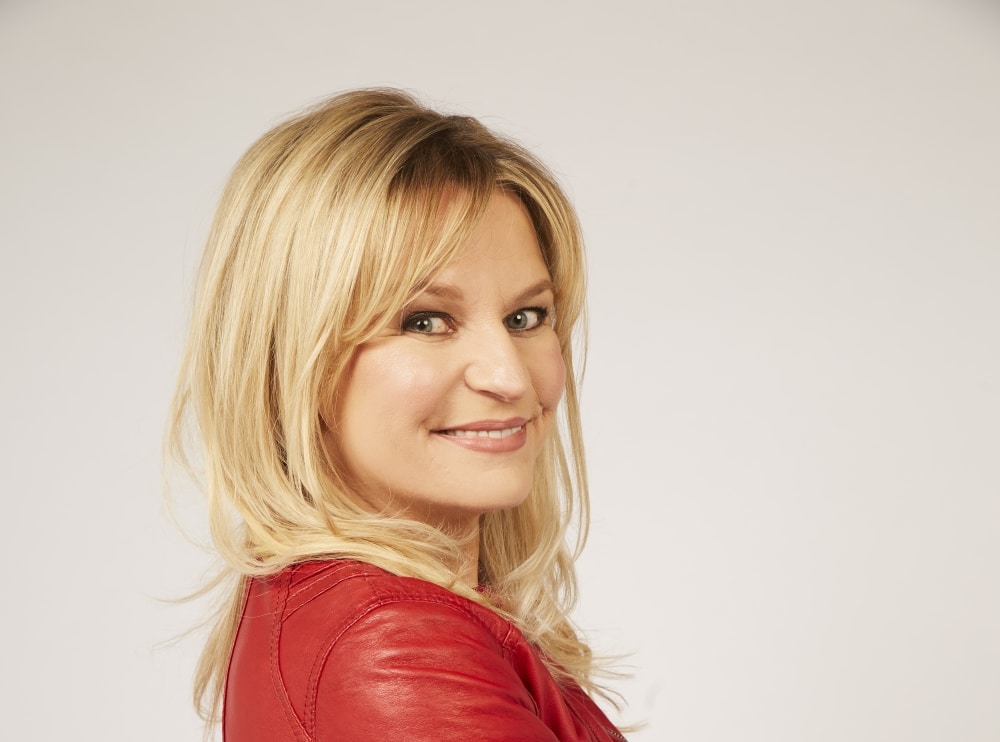Jasmine Birtles
Your money-making expert. Financial journalist, TV and radio personality.


This article about the uncertainty we’re currently going through (and will continue to go through for a while I think) is by Nick Hubble, editor of the Fortune and Freedom daily newsletter. The article was first published in that newsletter and I’m republishing it here.
“It’s tough to make predictions, especially about the future,” explained Yogi Berra. But it’s been a good run for Fortune & Freedom so far.
The bitcoin price boomed after we focused on it during the first few weeks of Fortune & Freedom.
Inflation, especially in the United States, soared days after we alerted readers in May.
The vaccine narratives are flailing… and Seychelles turned out to be a signal of what was to come for the rest of us after all.
Australia’s lockdown roulette and isolationism has left it a global pariah instead of a model to be emulated.
Brexit proved a roaring success by so many measures.
The euro area is struggling to recover economically.
The origins of Covid-19 that we think most probable are no longer a conspiracy theory.
The Green Bubble deflated… a bit.
There has been one disappointment though – the gold price. This has been in spite of an ideal environment for gold.
Here’s the problem. I have no clue what happens next. So many things could unfold in so many ways, that it’s making my head spin.
In fact, as I see it, uncertainty is growing, not falling, as the pandemic comes to an end. The extremes of possible outcomes are rising, not falling. As we say in the business, the bell curve is widening and the fat tails are growing.
Consider, for example, whether the pandemic really is ending.
Is it? I don’t think we have a clue. There are plenty of opinions, but I can’t buy into any of them.
And what a new variant of Covid could trigger…
We might be about to find out, if news from South Africa is anything to go by.
Would we be able to douse the fire this starts with more stimulus, quantitative easing, bailouts and debt moratoriums? Again?
Would we try to? I don’t know. So, even if I was right about a coming variant, I wouldn’t know how to react.

The opposite extreme – an inflationary boom – is also on the table. That would involve a post-pandemic surge in economic activity.
But for every prediction of recovery, there’s a prediction of stagflation as the economy struggles in a post-Covid world, triggering price spikes which reflect the new costs of doing business. Doing anything, really…
And then there’s the chance that the War on Terror could morph into the War on Covid, with all the never-ending costs and inefficiencies associated with this.
This scenario, which you might want to call an economic “long Covid”, seems quite likely now that nations look unable to escape Covid restrictions despite jabs and boosters.
Then there’s long Covid itself. What will that do to all of the above?
Recently, it is economic slowdowns that have caught my attention. This is especially so in China, the engine of the global economy and the source of deflationary pressure.
It seems extraordinary that, 18 months into the pandemic, the bottlenecks to travel and trade are only getting worse. Shipping costs and staff shortages, for example, continue to feature in the news.
In fact, so many of the problems we face now are mere modifications of problems we’ve had over the past 18 months.
The pingdemic has morphed into a vaccine passport fiasco.
AstraZeneca is looking better than Pfizer by some measures and Moderna has been experiencing potential contamination issues in some part of Japan.
This recent Bloomberg headline looks mighty familiar: “EU to Reimpose Travel Curbs on U.S. Amid Rise in Covid Cases”. Not to mention this one: “South African Scientists Say New Variant May Have ‘Increased Transmissibility’.”
It doesn’t look as if the more than 5.26 billion Covid shots given (including the United States’ 370 million doses), have made a difference to the news cycle…
The dramas over vaccines won’t end either. Just a few weeks ago I was pondering how Moderna has stayed out of the news surprisingly well. And then the contamination news out of Japan struck.
The journalists seem especially susceptible to vaccine complications, with a leading BBC and a leading Australian journalist struck down. At this rate, if their claims of getting vaccinated are true, we won’t have any journalists left to cover the pandemic!
And there are some even older problems which are also familiar. Like the EU’s fears of a new wave of refugees from the Middle East. What could another surge in immigration do to the EU?
It is funny how little has changed, isn’t it? The seven-day average for the total global current number of Covid cases has been at this level several times in the past… Globally, deaths are higher than during the first eight months of the pandemic!
Not everything is the same. The protests are growing, that’s for sure! And prices are definitely rising.

Overall, it seems to me that pressure in the cooker is growing, but what’s in the pot remains the same.
This creates a very different environment for predictions. That is because the key to what happens is what snaps first. That’s a lot harder to identify than to predict likely trends or historical repetition. Crises don’t happen often and they are triggered by surprise events.
In the build-up to the 1997 Asian financial crisis, for example, it was clear to those willing to listen that the fixed exchange rates were fuelling the boom by dictating loose monetary policy.
But this works both ways. So, the challenge was to identify what would reverse the pressure on exchange rates and thereby impose tight monetary policy, or force a revaluation of exchange rates. In the end, a random Thai property developer defaulted on US dollar debt, as it turned out.
In the lead-up to 2008, it was clear lending standards had fallen bizarrely low. The question was what would trigger a crisis as a result.
What would expose the fraud behind the South Sea Bubble? How many mad schemes would the French go along with during John Law’s Mississippi bubble? When will the euro die?
Yes, predicting which snowflake triggers the avalanche is tough to do. But it also misses the point. It’s the snowpack which avalanche-managing ski patrollers pay attention to. Before they lob the dynamite to solve the underlying problem.
Now, I don’t know about you, but I don’t see our policy makers at central banks and governments as the dynamite lobbing types… They prefer to keep the show going. And if you’re in the way of the consequences, you’ll get buried under the snow.
I wouldn’t book a skiing holiday just yet folks. This pandemic isn’t over.
Nick Hubble is editor of Fortune and Freedom
 As Nick says, above, gold tends to be a useful bolt hole for some of your money in uncertain times. It’s particularly good during inflationary periods – which we already seem to be in – so that’s a good start for some of your cash!. Find out different ways to invest in gold here.
As Nick says, above, gold tends to be a useful bolt hole for some of your money in uncertain times. It’s particularly good during inflationary periods – which we already seem to be in – so that’s a good start for some of your cash!. Find out different ways to invest in gold here.
Speaking of cash, generally in uncertain times it’s helpful to have a lot of your money in savings accounts, but this time is different. Inflation seems to be going up and up and there’s no sign that interest rates will follow. In fact currently mortgage companies are offering super-cheap loans which tells me that they expect rates to be low for a while. So do have a savings safety net for those ‘just in case’ moments but no more.
I’m like a cracked record, I know, but I also think you should diversify. Make sure you have money in various different assets including property (maybe just the house you live in), stocks and shares, commodities but not bonds as they are very poor and the bond market could even crash in the near future.
And if you’d like to be in with a chance of knowing what is going to happen next, read some alternative news sources. I recommend
